By "empty if-statement", I mean something like this (note the semicolon):
if (condition);
I'm having trouble thinking of an application for this. With a while loop you can do this:
while (callUntilReturnsFalse());
But there's no such application for an if-statement. What's more, the Java compiler doesn't issue an error or a warning when confronted with such a statement. This can lead to large and silent problems, especially with a long and convoluted statement:
if ((functionA() && functionB(getFoo()) ||
checkForComplexCondition(arg1, arg2, getBar(getFoo())));
{
doStuff();
}
My question is: why is this allowed in Java? And, more importantly, can I enable an option to cause a warning when this happens?
(This question was asked before with regards to C#, which does issue a warning, but I was hoping to find a way to cause a warning with Java.)

